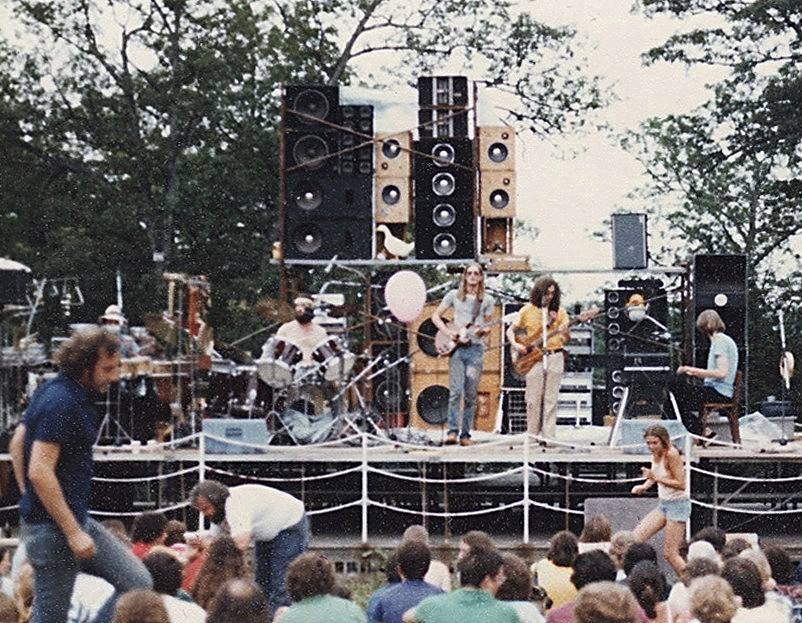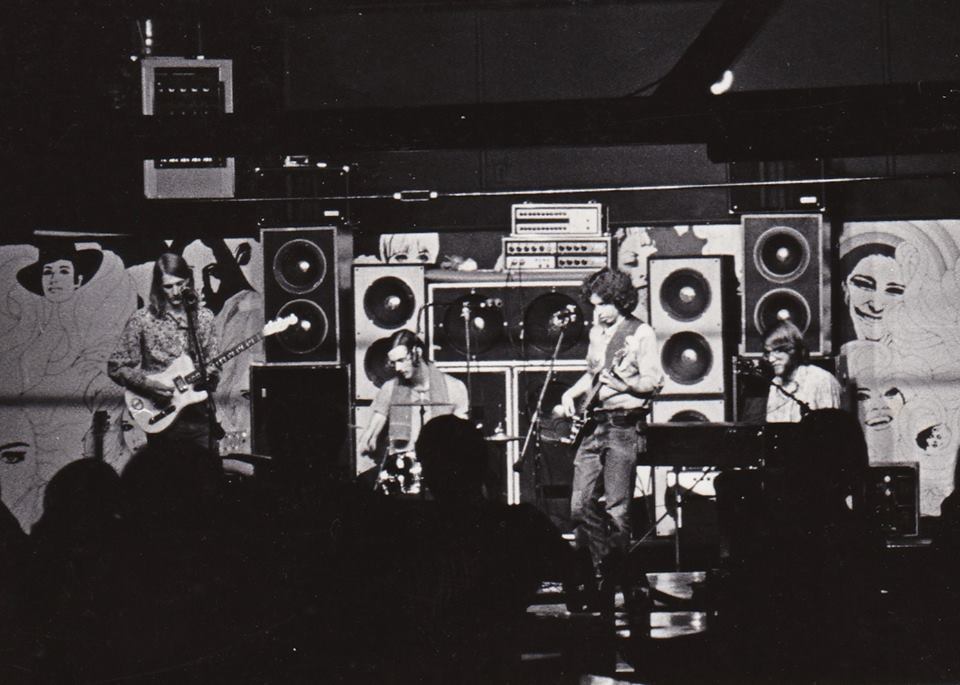A special three-hour feature on Max Creek aired on the Oct. 30 edition of Greasy Tracks to mark the band’s 50th anniversary.
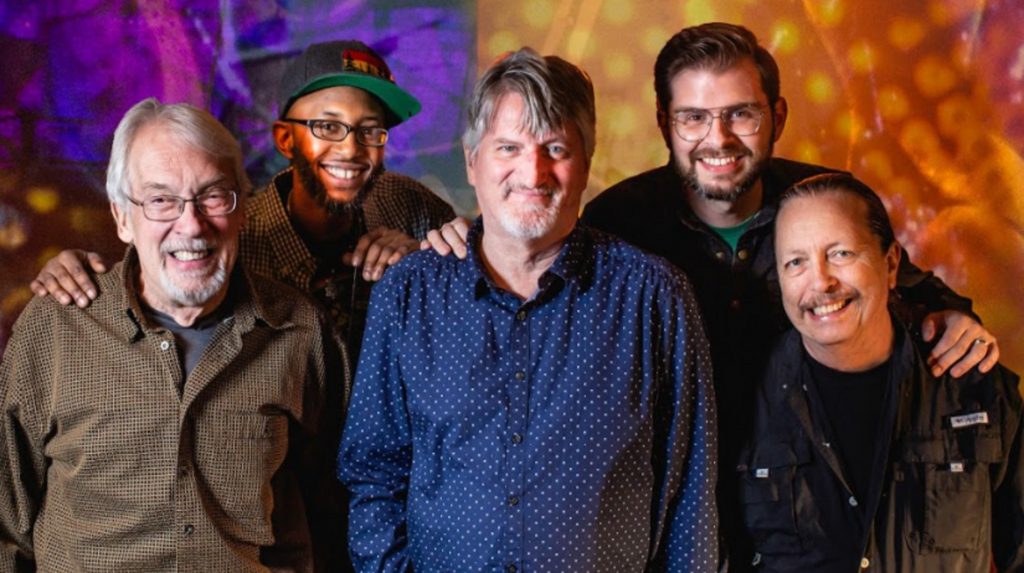
Click here to check out an archive of the program, while a playlist is here.
The spotlight included a decade-by-decade overview of live music by the band as well as interviews with members.
Best known as one of the earliest groups of the “jam band” genre, Creek’s roots can be traced to country music as the band got its start as a quartet in 1971: bassist John Rider, guitarist Dave Reed and drummer Bob Gosselin, augmented, albeit briefly, by an accordion player.
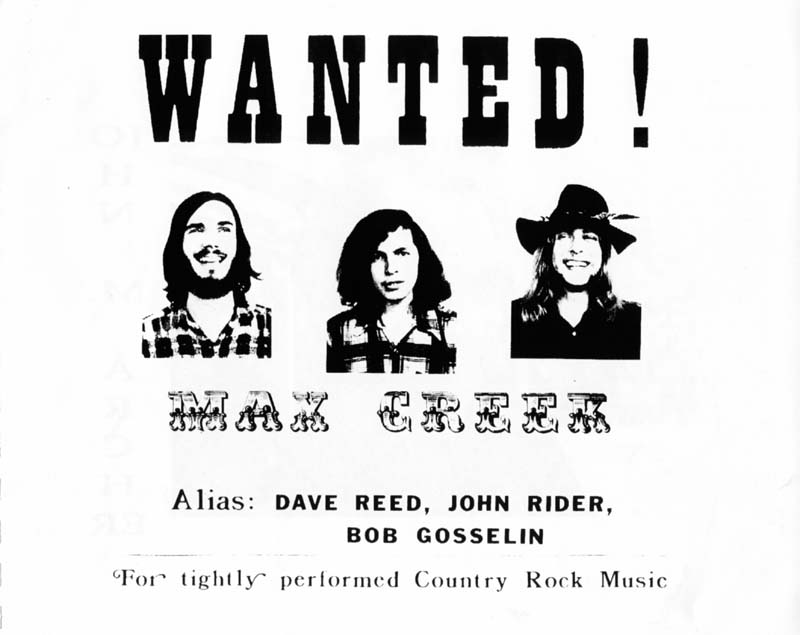
The humble beginnings of the group — heavily influenced by the Nitty Gritty Dirt Band and The Byrds — would go through a number of personnel changes and musical styles over time, yet still maintain many characteristics of those formative early years.
Although never known for their studio work, Max Creek released four solid albums, but really forged a legacy as a live act with a substantial repertoire of original material and tantalizing covers.
Rider along with guitarist Scott Murawski and keyboardist Mark Mercier proved to be a formidable group of composers, especially in the 1970s and 80s when, according to Murawski, crafting songs became especially competitive between the members.
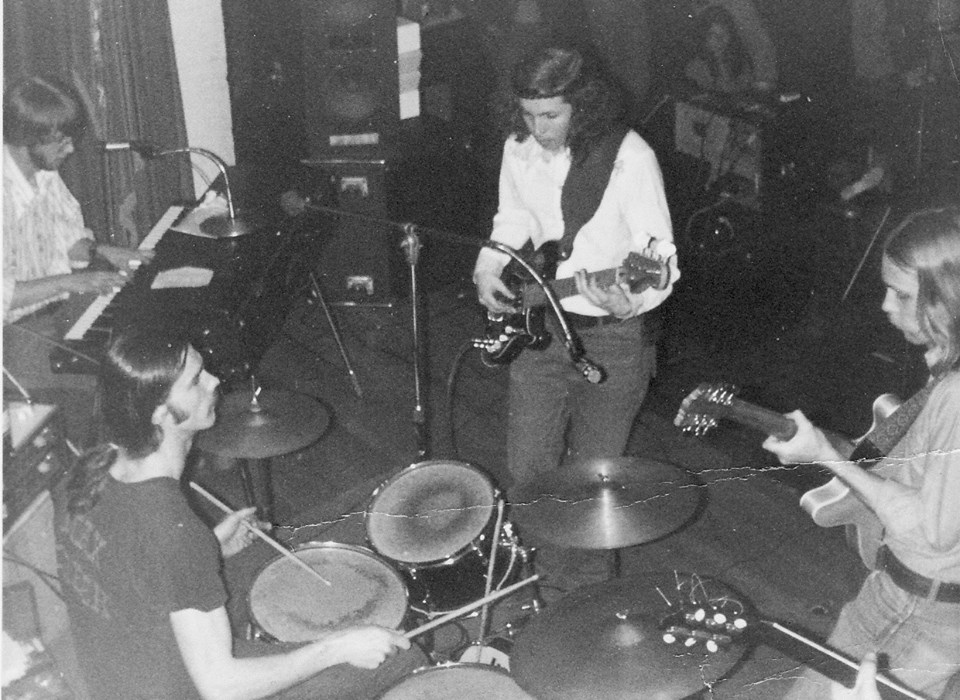
Oddly enough, Murawski was focusing on becoming a trumpet player — Rider and Reed were also trumpet players — when Reed, who was the then-15-year-old Murawski’s music teacher, asked him to sit in with Creek in 1972 after hearing him play guitar.
The Creek-as-a quartet-again only lasted a few months as the underage Murawski was kicked out of the Rocking Horse Parlor — a Hartford club the group regularly played — for drinking a beer on stage. As fate would have it, Murawski would be back in the band in 1973, returning shortly after Mercier, once a roommate of Rider’s at the Hartt School, was hurriedly drafted by Rider to fill in for Reed who was sidelined by acute appendicitis ahead of some holiday shows late that year.
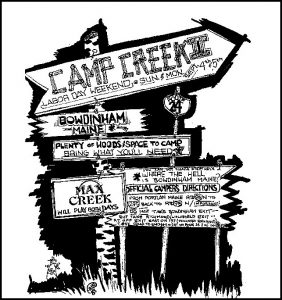
Stylistic changes were afoot as the band’s direction took to a more improvisational approach with less country and more acid rock filling the bulk of the band’s live sets. This created unrest at times in the band and Reed opted to pursue a solo career as Rider, Mercier, Murawski and Gosselin honed their chops, gaining a growing following and expanding their reach as a live act.
In 1976, vocalist Amy “Barefoot” Fazzano, joined the band — she had been a waitress at one of the clubs Creek played and usually sang while doing post-concert bathroom cleaning.
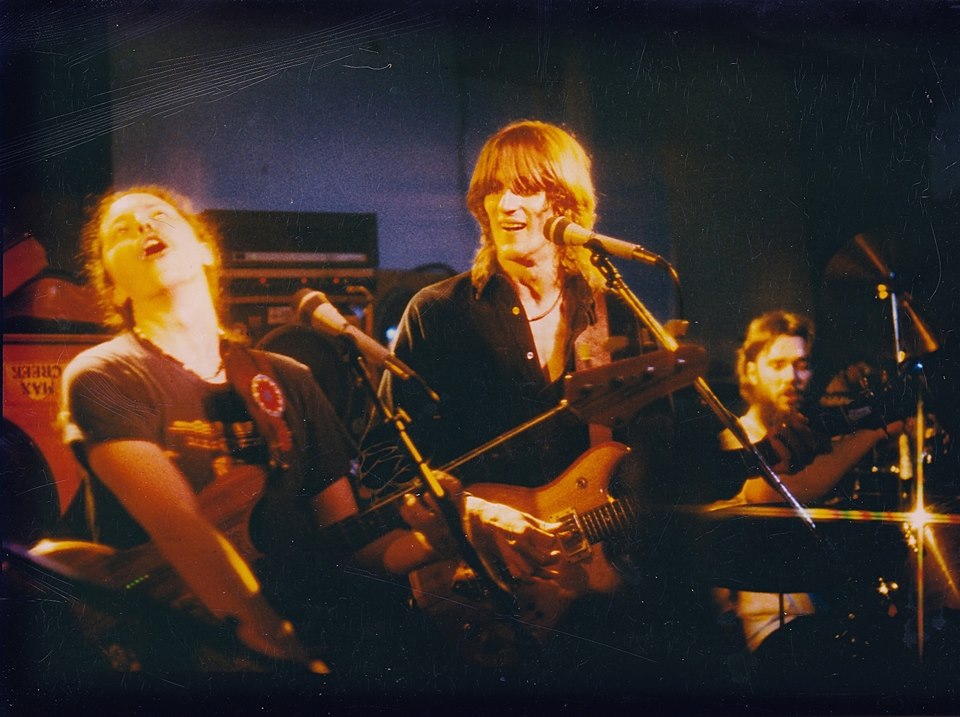
A year later, Creek put out their self-titled debut studio album — pressing 1,000 copies of their self-released LP — which featured all original compositions minus “Big Boat” — a bouncy re-arrangement of Willie Dixon’s “Tell That Woman” — which remains in the band’s sets to this day.
In 1979, percussionist Rob Fried joined the fold, providing a fuller sound as he alternated playing a wide array of percussion and a traditional trap set alongside Gosselin. A year later, the band’s second studio album, Rainbow (Wranger Records) came out.
The 1980s were the busiest years for the band when it came to playing live shows with 1982 proving to be the peak as the band logged 241 gigs that year.
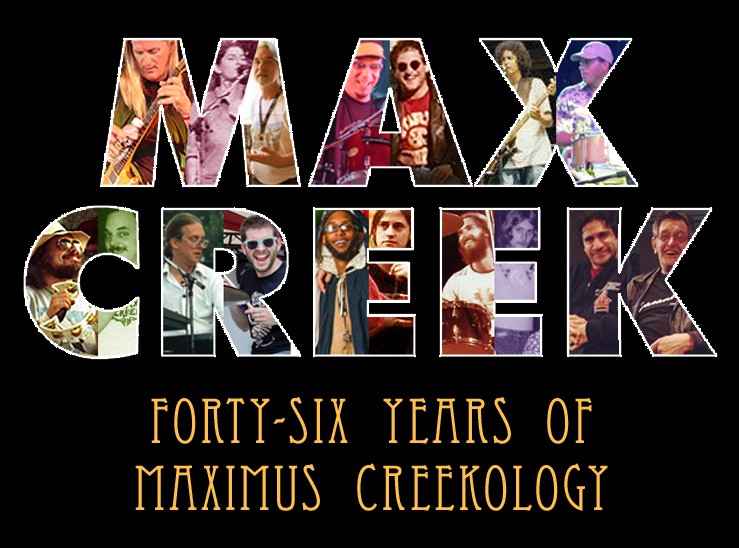
The band recorded a three-night run of shows in June 1982 at Cellblock Eleven in Hartford and soon after released Drink The Stars (Wranger Records), a double album packaged with a poster and notes in a nicely designed box set.
A handful of Max Creek shows were aired live on WRTC so there’s a chance a track or two from one of those performances could show up on this feature. In 2017, a four-part, 11-hour feature on Creek aired on WRTC, featuring interviews with current and past members of the band. Click for Part 1, Part 2, Part 3 and Part 4.
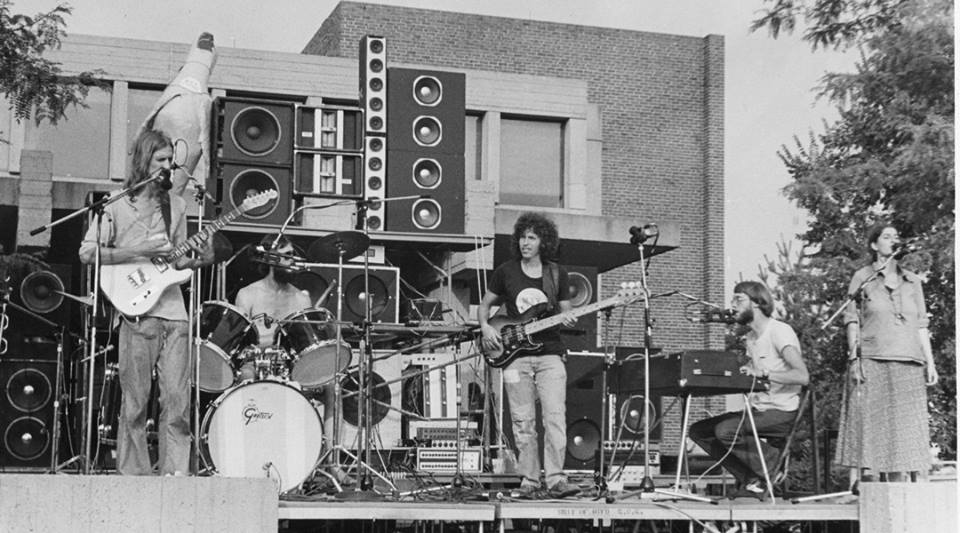
In 1991, DeGuglielmo was replaced by Greg Vasso who would do two spells with the band, the first ending in 1996 before he returned in for a second go-around 2004-2011. Scott Allshouse, who went to Creek shows as a high schooler in the 1990s, joined in 1996 and would partner with Vasso in the dual drummer format as Vasso returned in 2004 to take the place of Fried who left the band. In 1998, Creek recorded a pair of shows at the Webster Theater in Hartford for their live offering, Spring Water. Their New Year’s Eve gig at the Connecticut Expo Center in 1999 was also recorded and later released.
Fazzano would leave the band in 1983, but would often sit in during annual anniversary shows. Gosselin exited in 1985 and was replaced by Greg DeGuglielmo. This line-up recorded a pair of studio albums, Windows (Relix) in 1986 and MCMXC (Wranger Records) in 1990.
The Allshouse-Vasso partnership gave way to Creek’s current backline of drummer Bill Carbone and percussionist Jamemurrell Stanley who continue to handily carry on Max Creek’s rich timekeeping tradition.

